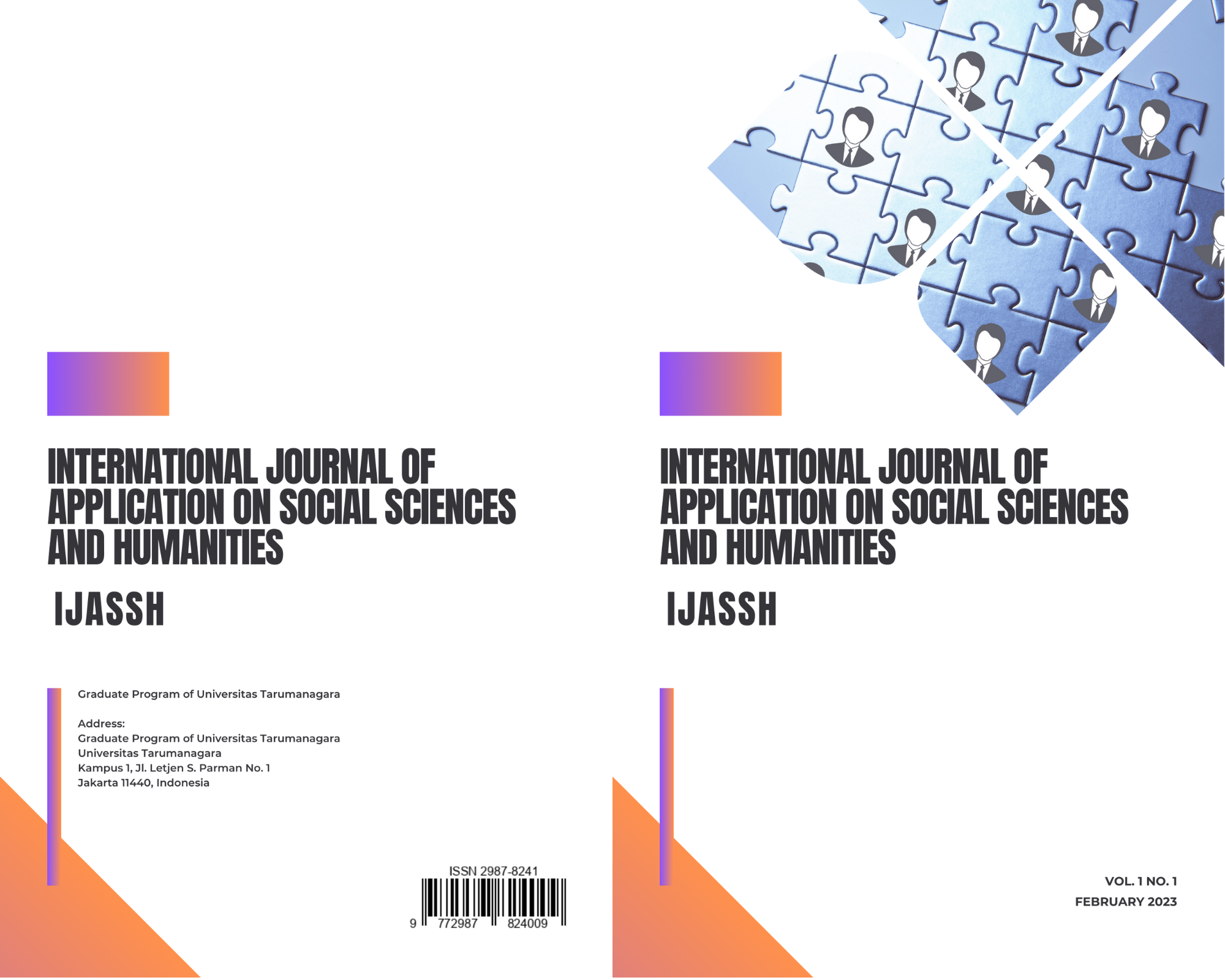THE MEANING OF HAPPINESS FOR PEOPLE WITH PHYSICAL DISABILITY IN EARLY ADULTHOOD
Main Article Content
Abstract
Physically disabled is a term used for individuals who have physical disabilities. Physical disabilities can be caused by life events or have been present since birth. People with disabilities are often considered to have a miserable life, but they can also feel happiness. Happiness can be seen through 5 indicators, including: (1) positive emotion; (2) engagement; (3) relationships; (4) meaning; (5) advancements. This study aims to obtain an overview of the happiness of early adulthood as a physically disabled person. There are 4 research subjects in their early adulthood, with characteristics aged 20-40 years in which 2 have a disability from birth and 2 others acquire physical disabilities through life events. This qualitative research uses in-depth interviews and interpretive phenomenological analysis. The research findings show that the four subjects have happiness, both which is a pleasant experience (hedonic) and that is achieved through meaning and purpose (eudaimonic). It was found that there was a relationship between the indicators that appeared in the four subjects, where all indicators led the subjects to feel happiness.
Article Details
Section

This work is licensed under a Creative Commons Attribution-NonCommercial-ShareAlike 4.0 International License.
References
Adelina, F., Akhmad, S. K., & Hadi, C. (2018). Bagaimana agar penyandang disabilitas fisik mampu menjadi pribadi yang bahagia?. Jurnal Sains Psikologi, 7(2), 119-125.
Ansori, A. N. A. (2020). Jumlah penyandang disabilitas di indonesia menurut kementerian sosial. Liputan6. https://www.liputan6.com/disabilitas/read/4351496/jumlah-penyandang-disabilitas-di-indonesia-menurut-kementerian-sosial
Awaludin, A. (2017). Martin Seligman and Avicenna on happiness. Jurnal Pemikiran Islam, 1(1), 1-30. doi: http://dx.doi.org/10.21111/tasfiyah.v1i1.1840
Biro Humas Kementerian Sosial Republik Indonesia. (2020). Kemensos dorong aksesibilitas informasi ramah penyandang disabilitas. Kemensos.go.id. https://kemensos.go.id/kemensos-dorong-aksesibilitas-informasi-ramah-penyandang-disabilitas
Campbell, S., Nyholm, S., & Walter, J, K. (2020). Disability and the goods of life. Journal of Medicine and Philosophy, 1-33.
Diener, E. (2021). Happiness: the science of subjective well-being. In R. Biswas-Diener & E. Diener (Eds), Noba textbook series: Psychology. Champaign, IL: DEF publishers. http://noba.to/qnw7g32t
Dunn, D. S., Uswatte, G., & Elliott, T. R. (2017). Happiness and resilience following physical disability. The Oxford Handbook of Positive Psychology, 1-28. doi: 10.1093/oxfordhb/9780199396511.013.54
Goodman et al. (2017). Measuring well-being: A comparison of subjective well-being and PERMA. The Journal of Positive Psychology. doi: 10.1080/17439760.2017.1388434
Handicaps Welfare Association. (n.d.). General information on physical disabilities. HWA. https://hwa.org.sg/general-information-on-physical-disabilities/
Hermans, H. & Meijers, F. (2019). The pursuit of happiness. British Journal of Guidance & Counselling, 47(2), 139-142. doi: 10.1080/03069885.2019.1612515
Jensen et al. (2014). Social support, depression, and physical disability: Age and diagnostic group effects. Disability and Health Journal, 7(2), 164-172. doi: https://doi.org/10.1016/j.dhjo.2013.11.001
Khazem et al. (2015). Physical disability and the interpersonal theory of suicide. Death Studies, 39(10), 641-646. doi: https://doi.org/10.1080/07481187.2015.1047061
Luhpuri, D. & Andayani, R. H. R. (2019). Disabilitas: Pengenalan dan praktik pekerjaan sosial dengan disabilitas di Indonesia. Poltekesos Press.
Moller, D. (2011). Wealth, disability, and happiness. Philosophy & Public Affairs, 39(2), 177–206. http://www.jstor.org/stable/41301867
Papalia, E. D., Olds, S. W., & Feldman, R. D. (2009). Human Development. (11th Ed.). McGraw-Hill Education.
Pratiwi, I. & Hartusujono. (2014). Resiliensi pada penyandang disabilitas fisik non bawaan. Jurnal Spirits, 5(1), 48-54.
Pusat Data dan Informasi Kementerian Kesehatan RI. (2019). Disabilitas. Kementerian Kesehatan RI.
Raftari, H. (2015). Happiness in view of aristotle and avicenna. International Journal of Social Science and Humanity, 5(8), 714-719.
Rajati et al. (2018). Quality of life predictors in physically disabled people. Journal of Education and Health Promotion, 7(61). doi: 10.4103/jehp.jehp_115_17
Scorsolini-Comin et al. (2013). From authentic happiness to well-being: The flourishing of positive psychology. Psicologia: Reflexão e Crítica, 26(4), 663-670.
Sheldon, K. M., Boehm, J., & Lyubomirsky, S. (2012). Variety is the spice of happiness: The hedonic adaptation prevention model. The Oxford Handbook of Positive Psychology, 1-18. doi: 10.1093/oxfordhb/9780199557257.013.0067
Sidekick. (2021). Dis-arming nick. Nick Vujicic. https://nickvujicic.com/
Sistem Perlindungan Anak Berkebutuhan Khusus. (2019). Pengertian, jenis dan hak penyandang disabilitas. Kemenpppa.go.id. https://spapabk.kemenpppa.go.id/index.php/perlindungan-khusus/anak-penyandang-disabilitas/723-penyandang-disabilitas
Tansey et al. (2017). Assessing college life adjustment of students with disabilities: Application of the perma framework. Sage Journals, 1-12. doi: 10.1177/0034355217702136
P. Hasking, M. E. Boyes, A. Finlay-Jones, P. M. McEvoy, and C. S. Rees, ‘Common Pathways to NSSI and Suicide Ideation: The Roles of Rumination and Self-Compassion’, Archives of Suicide Research, vol. 23, no. 2, pp. 247–260, Apr. 2019, doi: 10.1080/13811118.2018.1468836.
P. M. Reilly, & M. S. Shopshire. Anger management: For substance use disorder and mental health clients. Substance Abuse and Mental Health Services Administration. 2019
R. J. Zeifman, J. Ip, M. M. Antony, and J. R. Kuo, ‘On loving thyself: Exploring the association between self-compassion, self-reported suicidal behaviors, and implicit suicidality among college students’, Journal of American College Health, vol. 69, no. 4, pp. 396–403, May 2021, doi: 10.1080/07448481.2019.1679154.
S. Hariyadi, A. H. F. Anto, and W. A. Sari, ‘IDENTIFIKASI FAKTOR-FAKTOR YANG MEMPENGARUHI PENYELESAIAN SKRIPSI PADA MAHASISWA S1 PSIKOLOGI DI KOTA SEMARANG’, p. 6
W. Gao, S. Ping, and X. Liu, ‘Gender differences in depression, anxiety, and stress among college students: A longitudinal study from China’, Journal of Affective Disorders, vol. 263, pp. 292–300, Feb. 2020, doi: 10.1016/j.jad.2019.11.121.

